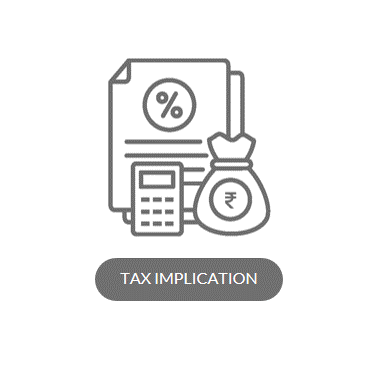Doing Business in IndiaElevate Your Business to the Next Level with Our comprehensive Suite of Services
AboutPartner with the Our Professionals to get more out of Your Business with Our Results-Driven Financial Services
As a dynamic Chartered Accountant (CA) firm in India, our expert team of professionals provides comprehensive services to businessmen and entrepreneurs. We offer innovative solutions to overcome the challenges they face and help them achieve their business goals. Whether you are starting a new business or looking to expand your existing operations in India, we can help you navigate the complex regulatory requirements and financial landscape of India. With our expertise and experience, we can provide customized solutions to meet your unique needs and help you achieve your business goals & we can also help you pilot complex compliance requirements and achieve optimal financial performance. Our services are designed to ensure compliance with all applicable laws and regulations, while maximizing your business’s growth potential.

Legal requirements and procedures for registering a company or LLP in India
- The Ministry of Corporate Affairs governs the legal requirements and procedures for registering a company or LLP in India.
- The first step is to obtain a Digital Signature Certificate (DSC) and Director Identification Number (DIN).
- The second step is to reserve a unique name for the company or LLP through the MCA portal.
- The Memorandum and Articles of Association (MOA and AOA) or LLP agreement need to be drafted and submitted.
- After filing the necessary documents and paying the fees, the ROC issues a Certificate of Incorporation or Registration.
Different types of companies and LLPs that can be registered in India and their advantages and disadvantages
- Private Limited Company: A private limited company is a popular choice for foreign investors due to its limited liability and separate legal entity status. A minimum of two and a maximum of 200 shareholders can own this type of company, and it is subject to the provisions of the Companies Act, 2013.
- Public Limited Company: A public limited company is similar to a private limited company but can have an unlimited number of shareholders. It can also issue shares to the public and has to comply with various regulations under the Companies Act, 2013.
- One Person Company: An OPC is a relatively new form of business entity introduced under the Companies Act, 2013, and is ideal for a single person to start a business. It offers limited liability and requires only one director and shareholder.
- Limited Liability Partnership: An LLP is a hybrid form of business that combines the benefits of a partnership and a company. It has separate legal entity status and offers limited liability to its partners. It is governed by the LLP Act, 2008.
- Sole Proprietorship: A sole proprietorship is a type of business that is owned and operated by a single person. It is the simplest and most common form of business entity, but it does not offer limited liability protection.


Specific Documentation Requirements
- As a CA firm providing company registration services, we understand the importance of proper documentation in the registration process. Here are the specific documentation requirements for registering a company or LLP in India:
- Identity proof and address proof of all directors or partners: This can be a PAN card, passport, voter ID, or driver’s license, along with a recent bank statement or utility bill as address proof.
- Digital Signature Certificates (DSCs): All directors or partners need to obtain DSCs, which are electronic signatures used for signing and filing documents online.
- Director Identification Number (DIN): All directors need to obtain DINs, which are unique identification numbers assigned by the Ministry of Corporate Affairs.
- Memorandum of Association (MOA) and Articles of Association (AOA): These documents define the company’s objectives, rules, and regulations.
- LLP Agreement: For LLP registration, an LLP agreement needs to be drafted and signed by all partners, defining the terms and conditions of their partnership.
- Address proof of the registered office: This can be a recent utility bill or lease agreement.
- Form DIR-2: This is a declaration of consent and declaration by the first director.
How to obtain a Digital Signature Certificate (DSC) and Director Identification Number (DIN)
- Digital Signature Certificate (DSC): A DSC is required for digitally signing documents during the company registration process. The following steps can be followed to obtain a DSC:
Choose a certified agency: The first step is to choose a certified agency such as e-Mudhra, Capricorn, or Sify, who will verify your identity and issue the DSC.
Submit the required documents: You will need to submit documents such as identity and address proofs, photographs, and a signed application form to the agency. - Verification process: The agency will verify your documents and issue the DSC once the verification is complete.
- Director Identification Number (DIN): DIN is a unique identification number required for all directors of a company. The following steps can be followed to obtain a DIN:
Obtain a Digital Signature Certificate (DSC) as mentioned above.
Obtain a DIN application form: The DIN application form can be downloaded from the Ministry of Corporate Affairs (MCA) website.
Fill in the form: The form needs to be filled in with details such as name, address, contact information, and proof of identity and address.
Submit the form: The form needs to be submitted along with the necessary fees and supporting documents to the MCA.


specific compliance requirements for companies and LLPs in India
- Annual filings: All companies and LLPs in India are required to file annual returns with the Ministry of Corporate Affairs (MCA). The annual return includes details about the company or LLP’s financial statements, shareholdings, directors, and other key information. The deadline for filing the annual return is usually within 30 or 60 days of Annual General Meeting.
- Tax filings: All businesses in India are required to file their income tax returns by 31 July of Assessment Year for individual and non-audit cases & 31st October for Companies. In addition, businesses must also file monthly or quarterly GST returns depending on their turnover.
- Accounting and record-keeping: Companies and LLPs in India are required to maintain proper books of accounts and financial records in accordance with the Companies Act, 2013 and LLP Act, 2008. These records should be maintained for a period of at least 8 years.
- Statutory audits: All companies and LLPs in India are required to undergo an annual statutory audit by a qualified Chartered Accountant. The audit should be completed within six months from the end of the financial year.
- Compliance with labour laws: Companies and LLPs must comply with various labour laws in India, including the Employees Provident Fund Act, 1952, the Employees State Insurance Act, 1948, and the Payment of Bonus Act, 1965. These laws regulate aspects such as minimum wages, employee benefits, and working conditions.
Tax implications for companies and LLPs in India
- Corporate tax: Companies and LLPs are subject to corporate tax, which is a direct tax on the profits earned by the business. The current corporate tax rate in India is 25% for Domestic companies with an annual turnover of up to INR 400 crore and 30% for those with a turnover exceeding INR 400 crore. LLPs are taxed at a flat rate of 30% on their total income.
- Goods and Services Tax (GST): GST is a value-added tax that applies to the supply of goods and services in India. It is levied on the value added at each stage of production and distribution. Businesses with an annual turnover of over INR 20 lakh are required to register for GST and file regular returns.
- Withholding tax: Withholding tax, also known as Tax Deducted at Source (TDS), is a tax that is deducted at the source of payment. For example, if a company pays a contractor for services, it must deduct a certain percentage of tax at the time of payment and remit it to the government. The rates for TDS can vary depending on the type of payment and the recipient’s status.
- Transfer Pricing: Companies and LLPs that engage in cross-border transactions with related parties are required to comply with transfer pricing regulations to ensure that they are not transferring profits to a related party in a low-tax jurisdiction, resulting in a loss of revenue for the Indian government.

To ensure compliance with Indian transfer pricing regulations, companies and LLPs must:
- Conduct a transfer pricing study to determine arm’s length pricing – This involves analyzing comparable transactions between unrelated parties to determine the fair market value of the transaction. Companies and LLPs are required to maintain documentation to support their transfer pricing methodology.
- File a transfer pricing report – Companies and LLPs are required to file a transfer pricing report in Form 3CEB along with their tax return. The report should provide details of the transfer pricing methodology, the comparable transactions analyzed, and the financial data used.
- Submit a Country-by-Country Report – Companies and LLPs that have a consolidated group revenue of more than INR 5,500 crore in the previous year are required to submit a Country-by-Country Report. This report should provide details of the group’s revenue, taxes paid, and other relevant financial data for each jurisdiction in which the group operates.
- Comply with Advance Pricing Agreements (APA) – APAs are agreements between a company and the tax authorities to determine the transfer pricing methodology for future transactions. Companies and LLPs can apply for APAs to ensure certainty in their transfer pricing arrangements and reduce the risk of transfer pricing disputes with the tax authorities.
- Non-compliance with Indian transfer pricing regulations can result in penalties and interest charges. Companies and LLPs should engage with a qualified CA firm to ensure that their transfer pricing arrangements are in compliance with Indian tax laws.
Some key deadlines to keep in mind for tax compliance in India include:
- Filing of annual tax return: Companies and LLPs must file their annual tax returns by 31st October of the following year.
- Payment of advance tax: Businesses are required to pay advance tax in four instalments throughout the year, with the final instalment due by March 15th.
- Filing of GST returns: GST returns must be filed on a monthly or quarterly basis, depending on the business’s turnover.

Specific requirements for appointing and managing directors, partners, and shareholders in a company or LLP in India
- In a company, directors are appointed by the shareholders through an ordinary resolution. Directors are responsible for the management and administration of the company and must act in the best interests of the company and its shareholders.
- In an LLP, partners are responsible for the management and administration of the LLP and must act in the best interests of the LLP and its partners.
- Both companies and LLPs must have a minimum of 2 directors or partners.
- Directors and partners must meet certain eligibility criteria and provide certain documents, such as a Director Identification Number (DIN) or a Designated Partner Identification Number (DPIN), as well as address proof and identity proof documents.
- Directors and partners must also comply with certain legal requirements, such as disclosing their interests in any contracts entered into by the company or LLP and avoiding conflicts of interest.
- Shareholders in a company must also comply with certain legal requirements, such as providing their address and PAN details, and filing any changes to their shareholding with the Registrar of Companies.
- As per the Companies Act 2013, a company can have a maximum of 15 directors, but can appoint more directors with the approval of shareholders. At least one director must be an Indian resident. Directors are appointed by the shareholders and must comply with the relevant provisions of the Act, such as the process for appointment, disqualification, and resignation.
- In an LLP, partners are responsible for managing the affairs of the LLP. The LLP agreement should specify the rights, duties, and responsibilities of each partner. The LLP Act 2008 lays down the provisions for appointment, cessation, and removal of partners.
Specific reporting requirements for companies and LLPs in India
- Companies in India are required to prepare financial statements in accordance with the Companies Act, 2013 and the Accounting Standards issued by the Institute of Chartered Accountants of India (ICAI). LLPs are required to prepare financial statements in accordance with the LLP Act, 2008 and the Accounting Standards issued by the ICAI.
- Financial statements must be audited by a Chartered Accountant in practice who is a member of the ICAI. The auditor must express an opinion on whether the financial statements give a true and fair view of the state of affairs of the company/LLP and comply with the applicable Accounting Standards.
- Companies and LLPs must file their annual financial statements with the Registrar of Companies (ROC) within 30 days of the annual general meeting (AGM). The AGM must be held within 6 months from the end of the financial year.
- Companies and LLPs with a turnover of Rs. 1 crore or more or whose total income exceeds Rs. 25 lakhs in a financial year are required to get their accounts audited and file an audit report in the prescribed form with the Income Tax Department. This is in addition to the audit required under the Companies Act/LLP Act.
- Companies and LLPs must file their income tax returns with the Income Tax Department by the due date, which is usually July 31st for companies and September 30th for LLPs.
- Companies and LLPs must also comply with the Indian Accounting Standards (Ind AS) if they meet certain thresholds related to turnover, net worth, or listed status.
- Non-compliance with financial reporting requirements can lead to penalties, fines, and legal action against the company/LLP and its directors/partners.

As a CA firm, we can help companies and LLPs ensure compliance with financial reporting requirements by providing services such as preparation of financial statements, audit of financial statements, and filing of necessary returns with the ROC and Income Tax Department. We can also provide guidance on the applicable Accounting Standards and Ind AS, and help clients understand and meet their reporting deadlines.



